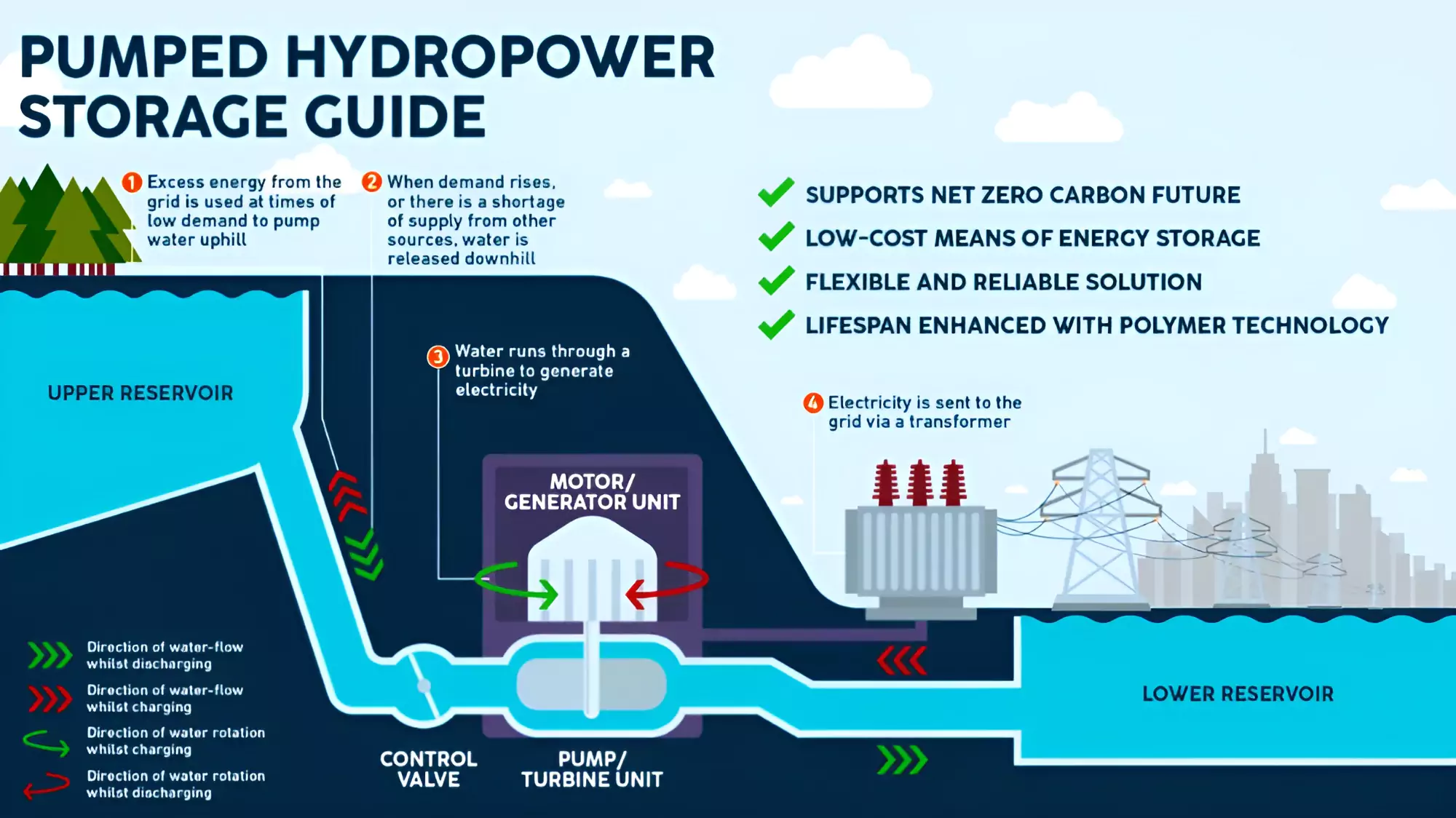Context
Recent droughts in Colombia and Ecuador have severely hampered energy supplied by hydropower.
Climate Change Threatens Hydropower Supply in Ecuador and Colombia
- Climate Vulnerability of Hydropower: The resulting power shortages have highlighted the vulnerability of hydropower in the face of climate change.
- Impact of Drought: A drought fueled by the El Nino weather phenomenon has reduced reservoir water levels in hydropower plants, which both countries rely on for most of their electricity.
- This has led Ecuador to declare a state of emergency and institute power cuts.
- In Colombia, water has been rationed in the capital and the country has halted electricity exports to Ecuador.
Enroll now for UPSC Online Course
Hydropower

Hydropower, or hydroelectric power, is a renewable source of energy that generates power by using a dam or diversion structure to alter the natural flow of a river or other body of water. Hydropower relies on the constantly recharging system of the water cycle to produce electricity, using a fuel—water—that is not reduced or eliminated in the process.
- Mechanism: Hydropower functions by harnessing the movement of water flowing through a turbine, which generates electricity as it spins.
- Current Dominance in the Clean Energy Sector: Hydropower has evolved into a crucial clean energy source due to its reliability, affordability, and low carbon footprint.
- Presently, it surpasses all other renewable sources combined in electricity generation.
- In 2021, hydropower generated 15% of the global electricity supply, third only to coal and gas, and more than all other renewable sources combined.
- Classification of Hydro Projects based on Installed Capacity: Hydro power projects are generally categorized in two segments i.e. small and large hydro.
- In India, hydro projects up to 25 MW station capacities have been categorized as Small Hydro Power (SHP) projects.
- Micro: upto 100 KW
- Mini: 101KW to 2 MW
- Small: 2 MW to 25 MW
- Mega: Hydro projects with installed capacity >= 500 MW
- Advantages: Hydropower is needed to stabilize electricity generation, providing power when wind and solar can’t.
- Renewable Source: It is a renewable source of energy with no consumables involved;
- Little Recurring Cost: There is very little recurring cost and hence no high long term expenditure. It is cheaper as compared to electricity generated from coal and gas fired plants.
- Ideal for Peak Load Management: Hydropower stations are preferred solution for meeting peak loads in grids due to its unique capabilities of quick starting and closing.
- Hydropower plants are usually able to ramp electricity generation up and down more quickly than coal, nuclear or natural gas.
Challenges to Hydropower Sector
- Capital Intensive: The hydropower generation is a highly capital-intensive mode of electricity generation.
- Environmental Impact: Submergence of land, thereby loss of flora and fauna and large scale displacement, due to the hydropower projects.
- Dependency on Water: Hydropower is dependent on water and its shortage disrupts energy production and stressing energy systems.
- Climate change: Droughts and sudden floods which can damage dams have been made more frequent and severe by climate change. Thus, it is an “increasing concern” for hydropower.
- Over-reliance increases climate vulnerability: Countries with a high dependence on hydropower are particularly vulnerable to climate impacts.
- In Africa, hydropower accounts for over 80% of electricity generation in the Democratic Republic of Congo, Ethiopia, Malawi, Mozambique, Uganda and Zambia.
Global Scenario:
- 2023 saw a Historic drop in Hydropower: According to Ember, a UK based energy think tank, in the first half of 2023 the global output of hydropower saw a historic drop in 2023.
- Drought conditions, potentially exacerbated by climate change, resulted in an 8.5% decline in global hydroelectricity production during this period.
- Impact of Drought on China’s Hydroelectricity Generation: China, the world’s largest hydroelectricity generator, accounted for three quarters of the global decline.
- During 2022 and 2023, droughts resulted in Chinese rivers and reservoirs drying up, leading to power shortages and necessitating electricity rationing in the country.
Renewables Energy Share in India: According to government data, as on October 31, 2023, India’s installed renewable capacity was 178.98 GW which includes large hydropower capacities of around 47 GW).
- Wind power: 42.8 GW
- Solar Power: 67.07 GW
- Biomass/Cogeneration: 10.2 GW
- Small Hydro Power: 4.94 GW
- Waste To Energy: 0.55 GW
- Large Hydro: 46.85 GW
|
Way Forward
- Diversification of Energy Mix: The climate vulnerable countries need to diversify their power sources by incorporating other renewable technologies such as wind and solar into their energy mix.
- Ghana and Kenya are successfully moving from high reliance on hydropower towards a more “robust portfolio of technologies”.
- Exploring the Potential of Floating Solar Panels in Hydropower Plants: Placing floating solar panels on the water’s surface in hydropower plants have significant potential. Ex- China and Brazil are exploring them.
- Focusing on Medium scale Plants: Despite the climate-risks associated with the technology, it is still considered significant in decarbonizing the global economy because it can provide cheap power at large scale.
- Building more medium scale plants, rather than the mega dams, would help mitigate the climate-risks associated with overdependence on one big dam.
- Enhancing Hydropower Resilience: Improved water management within basins and strategic integration of hydropower plants with other renewable sources can enhance resilience to drought.
- Pumped-storage hydropower systems: These pump water uphill during periods of low electricity demand and release it downhill during peak demand.
- These systems have minimal water consumption as they recycle water. While not entirely immune to drought, they are more resilient compared to conventional hydropower schemes.
Enroll now for UPSC Online Classes
Also Read: Major Hydropower Projects in India
![]() 2 May 2024
2 May 2024
